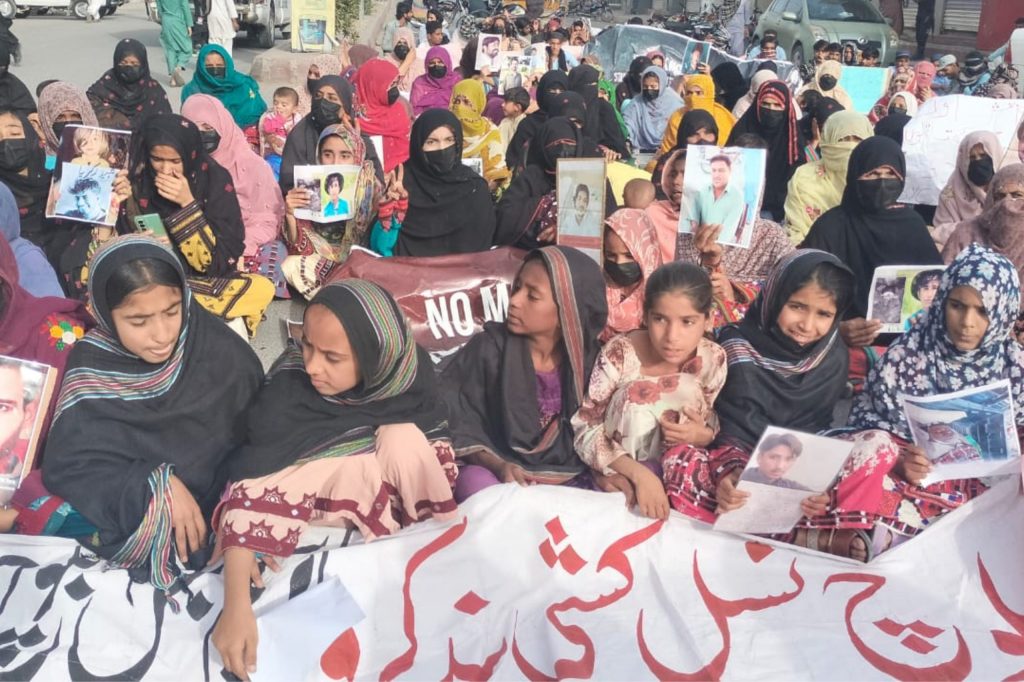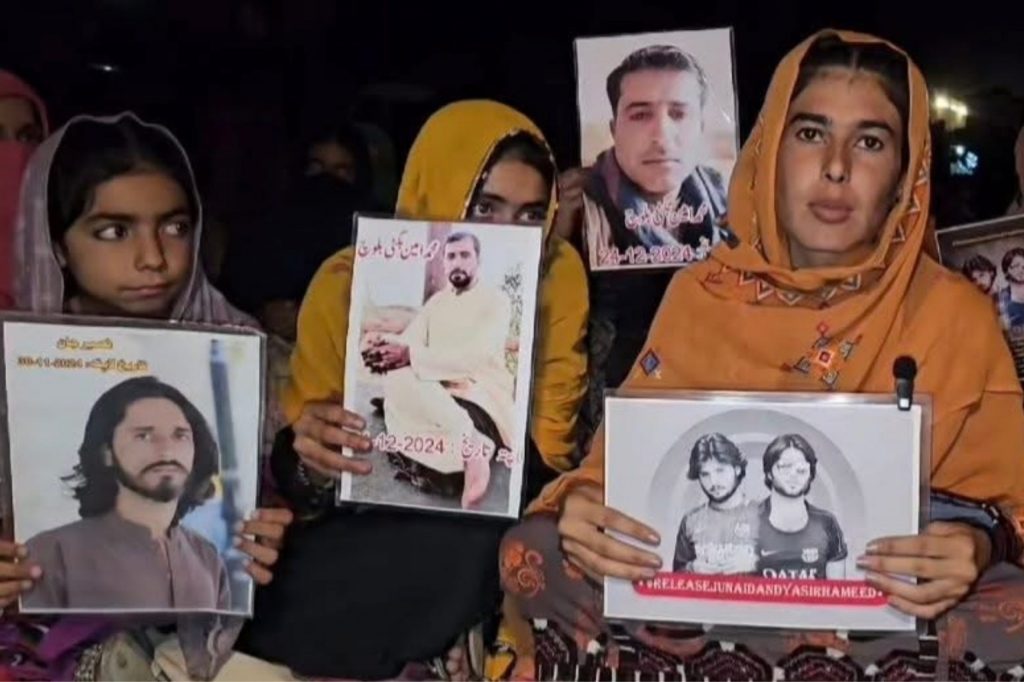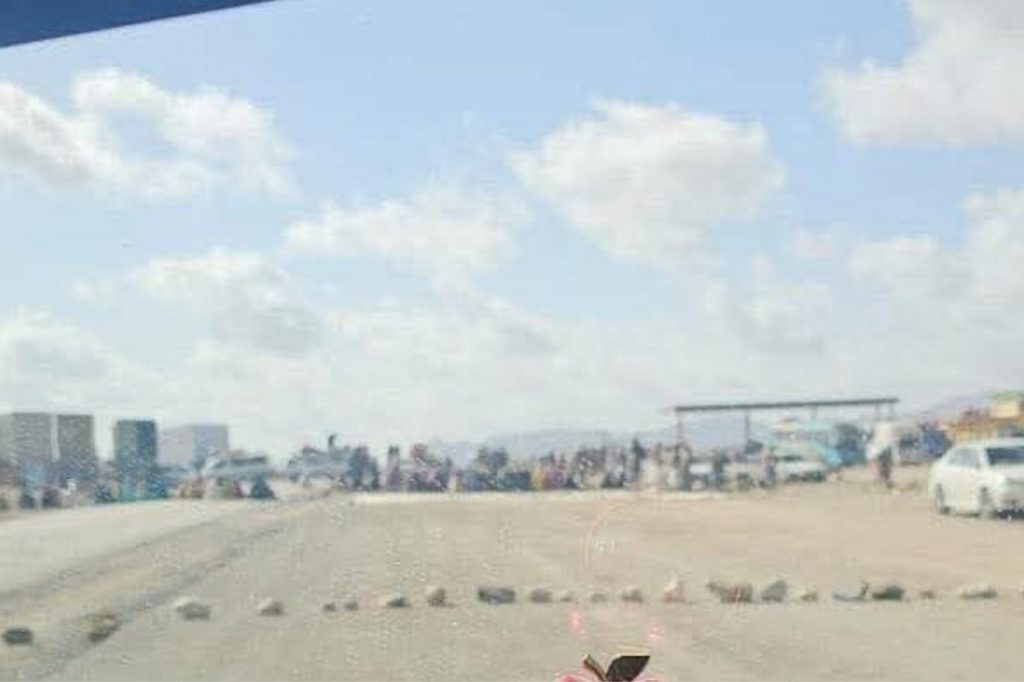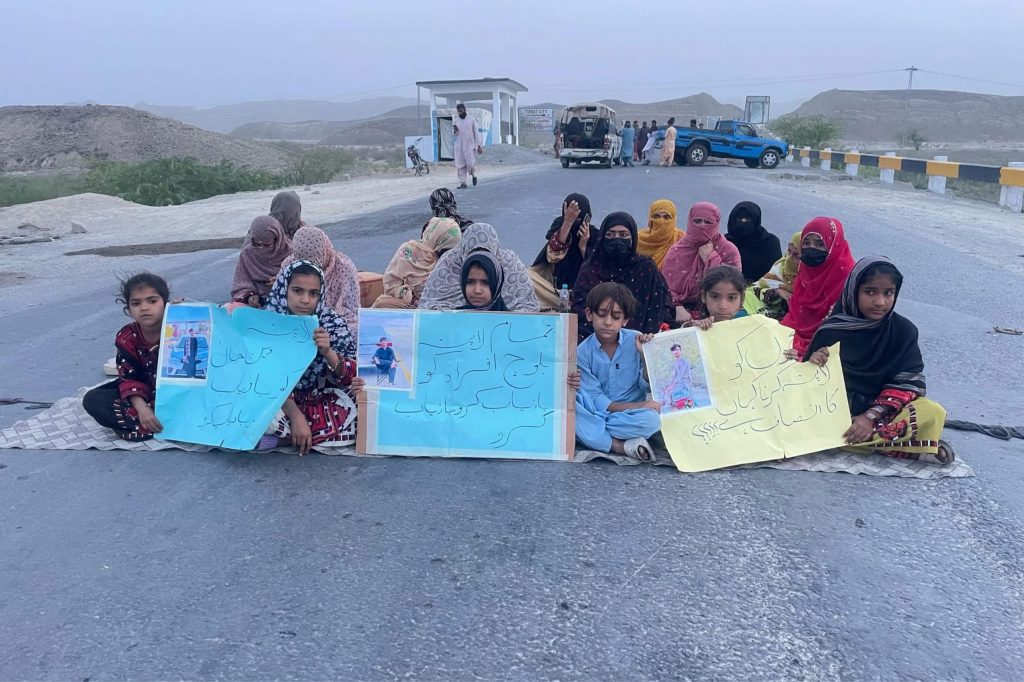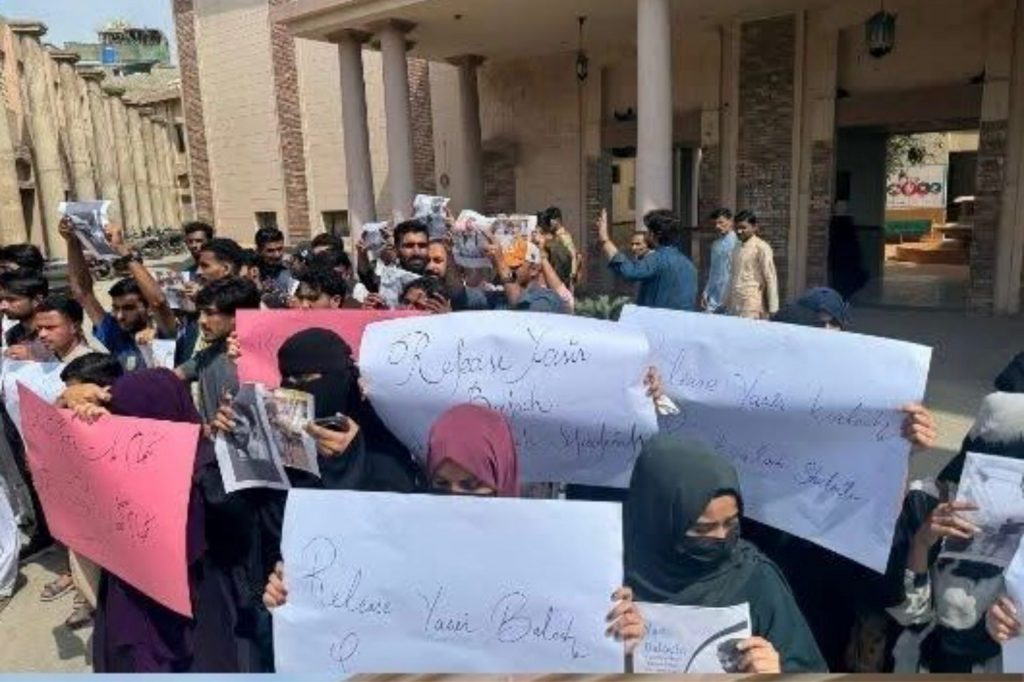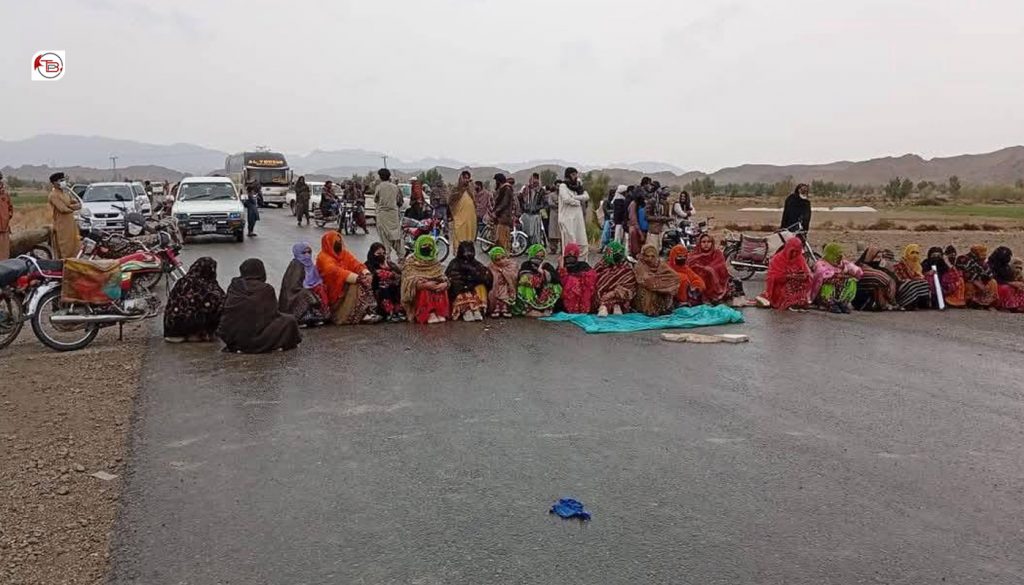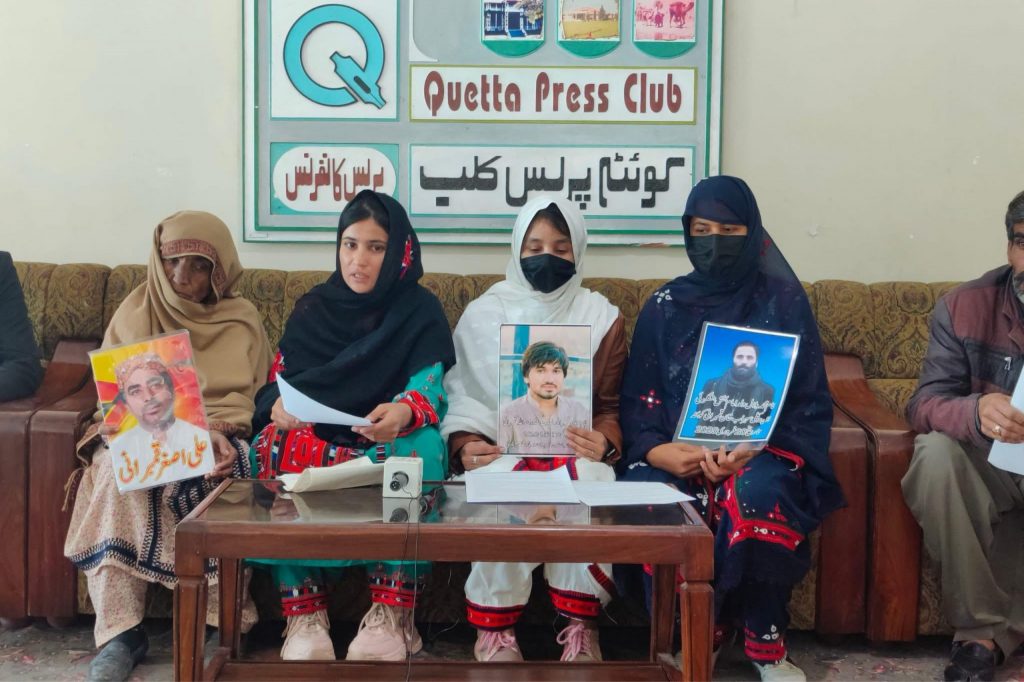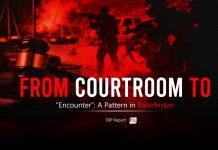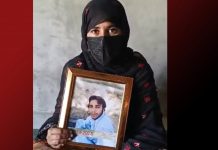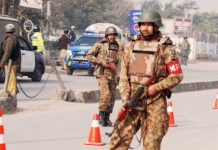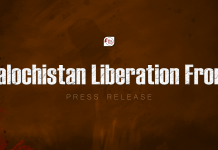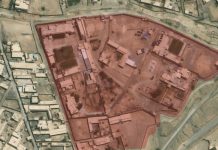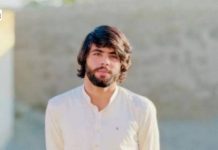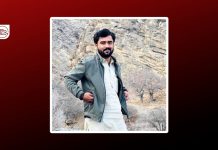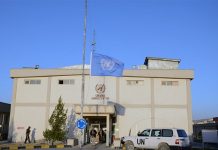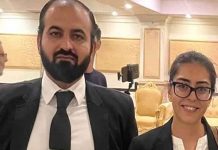Protests and sit-ins are unfolding across multiple cities in Balochistan, with families of forcibly disappeared individuals and local residents taking to the streets. Demonstrators are demanding an end to alleged enforced disappearances and extrajudicial killings, blocking major highways, including key routes linked to the China-Pakistan Economic Corridor (CPEC).
Sit-Ins Block Key Routes
For the past two days, families of Yasir and Junaid Sarparah, Nadeem Baloch, Naseer Baloch, Ehsan Baloch, and Ameem Bugti have staged a sit-in near Hub Chowki (Bhawani) on the Quetta-Karachi National Highway, demanding the immediate return of their missing loved ones.
In Surab, families of nine missing individuals from Zehri have held demonstrations at two locations, cutting off traffic between Karachi, Quetta, and Makran.
Additionally, in Pasni, families of missing persons again blocked the road to Kech on Friday, halting travel to Gwadar and nearby areas.
In Quetta, security forces allegedly raided a house late Thursday night, taking two brothers into custody. In response, their families blocked the Western Bypass, adding to the surge of demonstrations.
Elsewhere in Turbat, the family of Deen Jan and others are staging a sit-in at Jaddgal Dann (D Baloch Point) on the M-8 highway. They accuse authorities of ignoring prior assurances to release missing persons and say they will keep the road closed until all disappeared youth are recovered.
Meanwhile, in Karachi, the Baloch Students Council at Benazir Bhutto University, Lyari, organized a protest rally over the disappearance of Yasir Baloch, a graduate Media Sciences student reportedly taken by Pakistani forces on February 25 in Gulshan-e-Iqbal. Students demanded his immediate release, arguing that educational institutions must be safe spaces for all learners.
BYC Leads Protest Against Enforced Disappearances and Targeted Killings
On Friday evening, the Baloch Yakjehti Committee (BYC) Turbat held a large rally, calling for the recovery of missing persons. Hundreds of men, women, and children marched through Turbat, carrying photos of their disappeared loved ones and chanting slogans against enforced disappearances.
At Shaheed Fida Chowk, families of missing persons—including the sister of Deen Jan and Nasr Peer Bakhsh—spoke about what they called “targeted killings and abductions of Baloch scholars and students,” also denouncing the alleged exploitation of Balochistan’s resources and “occupation” of the Baloch coast.
BYC leaders announced that the protest movement against enforced disappearances would be expanded across all corners of Balochistan and that the voices of oppressed Baloch families would not be silenced. They declared that Baloch women and girls will continue their resistance, exposing state oppression.
The BYC also organized protests rallies in Hub Chowki, Mastung, and Panjgur, on issues of “enforced disappearances, extrajudicial killings, and the growing activities of state-backed death squads.”
On Thursday, they staged a demonstration outside the Lasbela Press Club in Hub, condemning what they termed an intensifying “kill-and-dump” policy. A significant number of families of missing persons took part, demanding immediate release of their loved ones.
In Mastung, a rally progressed from Shaheed Safar Khan Chowk to Shaheed Sultan Chowk. In Panjgur, protesters gathered at Javed Chowk, where numerous citizens—including women and children—voiced concern over targeted killings of Baloch youth.
Meanwhile, the family of Sabir Baloch, who was abducted on February 26 in Karachi, has blocked the Naal CPEC Route to demand his release. The BYC Naal Zone joined in, urging residents to stand in solidarity until Sabir returns safely.
Across these demonstrations, participants called for an immediate halt to alleged state repression and the unconditional release of all missing persons. The BYC announced that its leaders will host a press conference in Quetta on Friday to further address these issues.
Press Conference in Quetta
On Friday, BYC leaders and families of several missing persons, including Bilal Baloch (a Brahui-language poet), Asghar Qambrani (a singer), Jawad Ahmed, and Syed Gul, held a joint press conference at the Quetta Press Club.
They gave a three-day ultimatum, threatening widespread protests if their loved ones are not released before the start of the holy month of Ramadan.
“We do not want to disrupt life in Quetta,” they said.
“But if there is no immediate action, we will stage protests and sit-ins throughout the city.”
They also voiced worry over reports of ex-detainees being targeted or killed, increasing fears about the safety of their loved ones.
Enforced disappearances and Targeted killings in Balochistan are widely reported to be on the rise, with human rights organizations holding Pakistani forces and intelligence agencies responsible for abductions and extrajudicial killings of Baloch people.
Activists warn that this cycle of enforced disappearances and extrajudicial violence only worsens the region’s instability and alienation. Families at protest sites say they have reached a breaking point after waiting years—sometimes decades—without word on their missing loved ones.
They insist their demonstrations and sit-ins will continue indefinitely unless genuine steps are taken to recover the disappeared, reveal their whereabouts, and hold perpetrators accountable.
In Pictures: Protests Against Enforced Disappearances in Balochistan
